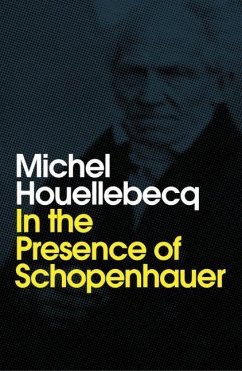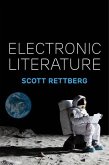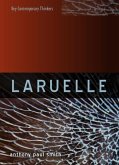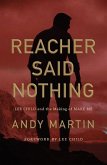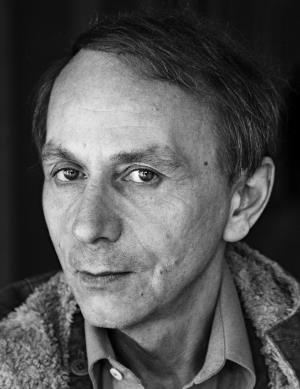The work of Michel Houellebecq - one of the most widely read and controversial novelists of our time - is marked by the thought of Schopenhauer. When Houellebecq came across a copy of Schopenhauer's Aphorisms in a library in his mid-twenties, he was bowled over by it and he hunted down a copy of his major philosophical work, The World as Will and Representation. Houellebecq found in Schopenhauer - the radical pessimist, the chronicler of human suffering, the lonely misanthrope - a powerful conception of the human condition and of the future that awaits us, and when Houellebecq's first writings appeared in the early 1990s, the influence of Schopenhauer was everywhere apparent.
But it was only much later, in 2005, that Houellebecq began to translate and write a commentary on Schopenhauer's work. He thought of turning it into a book but soon abandoned the idea and the text remained unpublished until 2017. Now available in English for the first time, In the Presence of Schopenhauer is the story of a remarkable encounter between a novelist and a philosopher and a testimony to the deep and enduring impact of Schopenhauer's philosophy on one of France's greatest living writers.
Hinweis: Dieser Artikel kann nur an eine deutsche Lieferadresse ausgeliefert werden.
But it was only much later, in 2005, that Houellebecq began to translate and write a commentary on Schopenhauer's work. He thought of turning it into a book but soon abandoned the idea and the text remained unpublished until 2017. Now available in English for the first time, In the Presence of Schopenhauer is the story of a remarkable encounter between a novelist and a philosopher and a testimony to the deep and enduring impact of Schopenhauer's philosophy on one of France's greatest living writers.
Hinweis: Dieser Artikel kann nur an eine deutsche Lieferadresse ausgeliefert werden.
?So when I borrowed ?Aphorisms on the Wisdom of Life? from the municipal library of the seventh arrondissement in Paris (more specifically, its annex in the Latour-Maubourg district), I may have been aged twenty-six, but equally possibly twenty-five, or twenty-seven. In any case, this is very late in life for such a major discovery. At the time, I already knew Baudelaire, Dostoevsky, Lautreamont, Verlaine, almost all the Romantics; a lot of science fiction, too. I had read the Bible, Pascal?s Pensees, Clifford D. Simak?s City, Thomas Mann?s The Magic Mountain. I wrote poems; I already had the impression I was rereading, rather than really reading; I thought I had at least completed one period in my discovery of literature.?
?And then, in a few minutes, everything dramatically changed.?
?And then, in a few minutes, everything dramatically changed.?

